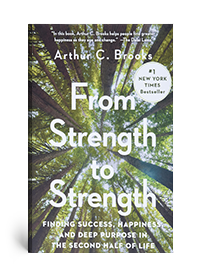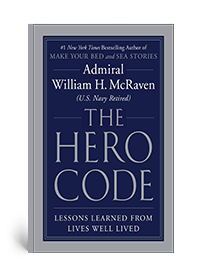Friends,
Welcome to my 19th quarterly newsletter. This one addresses our minds and our ability to think in the second half of life.
Our minds and our thinking ability change in the second half of life – starting, believe it or not – in our late 30’s. Most of us perceive this change as a decline and as a negative event, but actually, it is more of a transition than a decline.
I am sorry to say in the late 30’s certain areas of our brain, particularly the prefrontal cortex, begin to diminish. The implications of this change are that our ability to recall facts, names, events, creatively solve problems, and multitask begins to decrease. If you are in your 40’s, you’re probably pretty oblivious to these changes, but in your 50’s and 60’s and beyond, my guess is that every one of you will have noticed these limitations.
But before you get too depressed about this life change, recognize that some of our thinking ability actually improves in the second half of life. Let me explain.
You can break intelligence into two types – “vertical intelligence” and “horizontal intelligence,” or as some psychologists refer to it, “fluid intelligence” and “crystallized intelligence.”
In our younger years, we are great at vertical/fluid intelligence. It is the stuff of remembering facts, events, etc. It is about the ability to accumulate and recall knowledge. And yes, this type of intelligence declines as we pass midlife. By the time we are 50, we probably carry around enough facts and experiences to fill your local library. So if we meet up with someone we haven’t seen in some time and can’t remember his name, we send off our “librarian” to find out who the hell he is. Our librarian moves a little more slowly, is more easily distracted, and has to search through dozens of stacks and several floors. By the time our librarian comes back with the desired information – “his name is Mike” – Mike is long gone and we are on to something else. And of course, we punish ourselves for not remembering Mike’s name and wonder if it is a sign of dementia. It probably isn’t, it is just a normal process of aging.
But interestingly, another type of intelligence begins to grow as we age. Horizontal/crystallized intelligence begins to blossom as the vertical/fluid intelligence declines. Here is how Arthur Brooks illustrates these changes in his excellent book Strength to Strength:

Horizontal/crystallized intelligence is the ability to understand and use concepts, to connect things that we might previously have seen as unrelated, and to make connections with people at perhaps a deeper level. We get better at interpreting ideas and expressing them to others. Put most simply, in our youth we have the knowledge and the ability to recall that knowledge quickly and fluidly. But as we age, what comes to us is perhaps most easily expressed as wisdom. Hence the adage “with age comes wisdom” – although I have noticed at times age comes alone!
Knowledge and wisdom are not quite one and the same. Arthur Brooks in a whimsical way describes knowledge as knowing that a tomato is a fruit. Wisdom is knowing not to use it in a fruit salad. A little less whimsical and more meaningful description would be to say that knowledge is knowing that cocaine makes one feel great, while wisdom knows that its use is a shortcut to hell. Wisdom is seeing things in a more complete, complex, meaningful way.
Here is what I have found and perhaps you will have experienced something similar. Yes, I think I cannot recall names and facts as readily as I once did. I used to be able to remember my MasterCard number. No more. But now I see things in a larger more complete context. For the past 15 years, I have been fascinated with and studied the subjects of happiness and the second half of life. Today, I can’t watch an episode of Everybody Loves Raymond, read a novel, watch a newscast, read the newspaper, or listen to a podcast, without reflecting on these two subjects. I now see how things are connected, in a larger and more complete context, far more than I ever did 30 years ago. And to be perfectly candid, I find this ability to see things in a larger more complete context is far more rewarding and of greater value than being able to recall my MasterCard number…
So next time you forget why you went into a room, or a close friend’s telephone number, or even where you put your car keys, accept it as part of the normal aging process and rejoice in your expanding wisdom. I think it is a pretty fair tradeoff.
I hope you find this helpful. Let me know what you think. I would love to learn from your experiences.
Be well … better yet thrive.

–Douglas. A. Smith
“Knowledge is knowing that a tomato is a fruit. Wisdom is knowing not to use it in a fruit salad.”
–Arthur Brooks
From the bookshelf!
Books I am reading and highly recommend.



